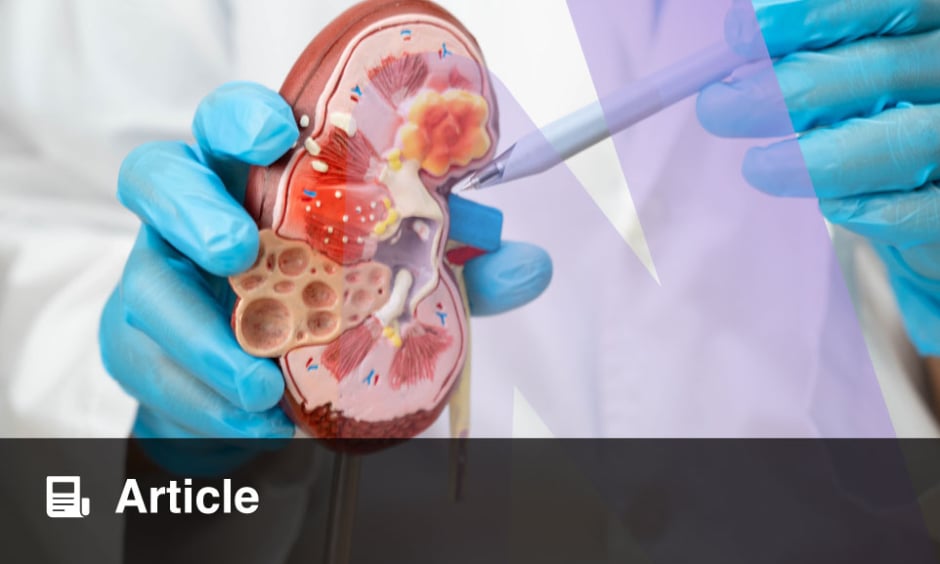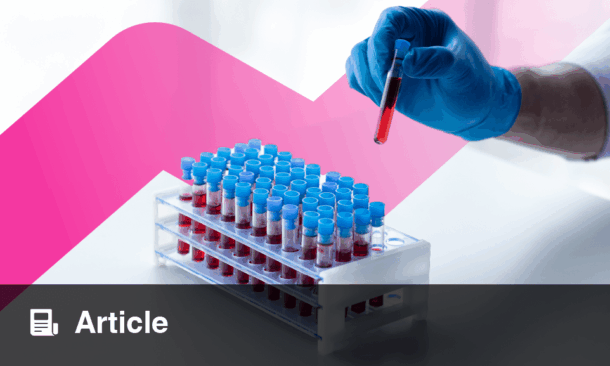Nina Gold | Division of Medical Genetics and Metabolism, Department of Pediatrics, Massachusetts General Hospital for Children, Boston; Director of Prenatal Medical Genetics and Associate Director of Research, Massachusetts General Brigham Personalized Medicine, Boston; Harvard Medical School, Boston, Massachusetts, USA
Citation: EMJ. 2024;9[2]:61-63. https://doi.org/10.33590/emj/11000023.
![]()
After completing your medical degree at Harvard Medical School, Boston, Massachusetts, USA, you undertook a combined residency in paediatrics and genetics. Is this a field you had always wanted to specialise in, or was there a pivotal moment in your education and training that inspired you?
I always knew that I wanted to work with children. My mother is a paediatric nurse practitioner, and my father is a child psychiatrist. Their careers brought them joy, and allowed them to make tremendous contributions to our community.
My interest in genetics began after college. Before beginning medical school, I worked as a clinical research assistant to Lewis Holmes, Chief Emeritus of Medical Genetics at Massachusetts General Hospital in Boston. My job involved interviewing new mothers of infants born with congenital anomalies, and creating a new classification system for limb deficiencies. I loved how medical genetics combined family-centred care with cutting-edge science.
During medical school, I was mentored by Vamsi Mootha, an international expert in mitochondrial disorders, and Robert Green, who is renowned for his work in the implementation of genomic sequencing. These experiences led me to develop a research niche at the intersection of inherited metabolic disorders and genomic testing implementation. Over 10 years later, Green continues to be my primary research and career mentor. He is extraordinarily supportive of my academic goals, and has guided me toward new and fascinating projects.
Your research has recently focused on genomic newborn sequencing (NBSeq). What are the expert opinions on the feasibility of performing this for all newborn babies, and what infrastructure would be needed to achieve this?
To borrow an analogy from retail, I think NBSeq is currently experiencing a ‘last mile delivery’ problem. When you order a package online, the final phase of shipping from the delivery truck to your doorstep is the slowest, and most expensive. We have travelled nearly all the way toward NBSeq; we have the infrastructure in place to collect blood samples from newborns at birth; DNA can be sequenced and interpreted at increasingly reasonable costs; and genomics is being more widely integrated into clinical care.
However, here we are, stuck at the last mile before implementation. Which genes should we sequence and report in children? Can newborn screening laboratories perform and possibly interpret sequencing results? Are genetics and paediatrics workforces prepared to care for the children who receive positive screening results? Finally, although both parents of children with rare diseases and parents of apparently healthy children have demonstrated enthusiasm for genomic newborn screening, some critics remain concerned about how such testing might affect familial stress and parent–child relationships.
I hope my work will provide a little bit of fuel to help us reach the goal of equitable, scalable genomic newborn screening. I am collecting data to inform the sensitivity and specificity of genome-first approaches. These findings might eventually be used to counsel families about the meaning of positive genomic findings in their infants.
What potential clinical impact would routine newborn genomic screening have on rare genetic disease outcomes?
Genomic newborn screening has the potential to save lives. You can imagine a young boy born with haemophilia A. Instead of experiencing a mysterious and life-threatening bleeding episode as a child, he might be identified as an infant through genomic screening, monitored for bleeding symptoms, and promptly receive a factor VIII infusion when needed. A child at risk for retinoblastoma, a hereditary eye tumour, might receive early and routine eye exams that lead to an early cancer diagnosis, and spare the child’s sight.
Genetic information is nuanced, however, and many genetic variants do not directly lead to disease symptoms. For every success, there will be a challenge, such as the variable symptoms of many genetic disorders, or the lack of curative treatments for some disorders. The longer I am in this field, the more research questions and quandaries I see ahead of us. These challenges should not stop us, however, from implementing genomic sequencing as a tool to screen for several highly treatable disorders now.
In 2021 you received an Eleanor and Miles Shore Faculty Development Award. What research was this award based on, and have you been able to build on this since 2021?
I was very fortunate to receive an Eleanor and Miles Shore Faculty Development Award, which provides research funding for early career physician-scientists at Harvard Medical School. With my frequent collaborator, Jessica Gold, I collected data on adults in two hospital-based biobanks who had genomic variants associated with two undiagnosed metabolic disorders. Our work was published, and I used these pilot data to apply for a K08 mentored clinical scientist award from the National Human Genome Research Institute (NHGRI).
You are currently the Director of Prenatal Medical Genetics at the Massachusetts General Brigham hospital-based biobank. How did you come to take on this position, and what does the role entail?
I took on this role in 2020, shortly after I became a mother. Although I am primarily trained in paediatrics, I see prenatal genetic care on a continuum with newborn genetic care. I also feel privileged to be a part of patients’ care during pregnancy. I regularly care for pregnant people who have genetic conditions, and counsel those whose fetuses are at risk for genetic conditions.
Are there any innovations in either genomic screening or gene therapy that you are excited to see develop further?
I am fascinated by prenatal therapies for genomic conditions. Several genetic disorders, such as lysosomal storage disorders, cobalaminopathies, and even cystic fibrosis, can be treated before birth. The next step will be to determine how best to identify the fetuses who may benefit from these therapies.
Alongside your clinical work, research, and involvement in teaching, you are now undertaking a Master of Medical Sciences in Biomedical Informatics. What does this course entail, and how does it apply to your day-to-day practice?
I am a first-year student in the part-time accelerated Master of Medical Sciences in Biomedical Informatics Program at Harvard Medical School, directed by Nils Gehlenborg. It’s not easy keeping up with weekly homework, but I’ve learned so much from my courses! I’m working hard to improve my skills in coding, biostatistics, and data visualisation. I have expanded my own research skillset, and look forward to sharing what I’ve learned with my mentees.
To conclude, what advice would you give to medical students or early-career physicians aspiring to a career in medical genetics?
Above all, caring for patients continues to be the most rewarding part of my job. I think that clinical care reminds us why our research matters. Find an area that fascinates you, and make time for your life outside of work.







